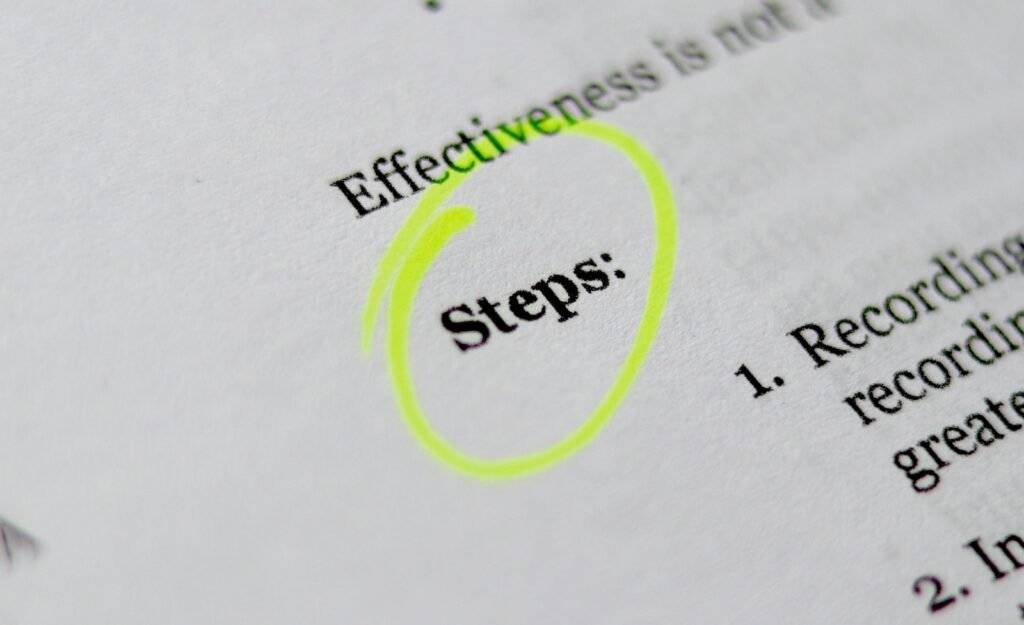The Importance of Local Link Building for SEO
Local link building is an essential aspect of search engine optimization (SEO) that should not be overlooked. It plays a crucial role in improving your website’s visibility and rankings in local search results. When other reputable local websites link back to your site, it signals to search engines that your business is trustworthy and relevant to the local community. These local links act as votes of confidence, indicating that your website is a valuable resource for users searching for local products or services.
One of the key benefits of local link building is that it helps to increase the credibility and authority of your website. When search engines see that your website is linked to by other authoritative local sources, it boosts your site’s reputation and increases the likelihood of ranking higher in local search results. Additionally, local link building can drive targeted traffic to your website, as users who are interested in local businesses or services are more likely to click on relevant links. Overall, incorporating local link building into your SEO strategy is essential for maximizing your visibility and attracting local customers.
Understanding the Basics of Local SEO
Local SEO is an essential component of any successful digital marketing strategy that aims to target a specific geographic area. It involves optimizing your website and online presence to appear prominently in local search results. With the increasing popularity of mobile search and the rise of “near me” queries, understanding the basics of local SEO can give your business a competitive edge in attracting local customers.
One of the key distinctions between local SEO and traditional SEO is the emphasis on local relevance. While traditional SEO focuses on improving organic search rankings on a national or global scale, local SEO is all about ensuring that your business is visible to people searching for products or services in your local area. This requires optimizing your website’s on-page elements, such as including the name of your city or region in your title tags, meta descriptions, and content.
Additionally, local SEO involves building citations and links from local directories, as well as obtaining positive reviews and ratings from local customers. By understanding these fundamentals, you can lay a solid foundation for your local SEO efforts and increase your chances of reaching your target audience effectively.
• Local SEO is a vital component of digital marketing strategy for targeting specific geographic areas.
• It involves optimizing your website to appear prominently in local search results.
• Mobile search and “near me” queries have made local SEO even more important.
• Local SEO focuses on local relevance rather than national or global rankings.
• On-page optimization includes including the name of your city or region in title tags, meta descriptions, and content.
• Building citations and links from local directories is crucial for local SEO success.
• Positive reviews and ratings from local customers can greatly benefit your local SEO efforts.
Key Differences Between Local SEO and Traditional SEO
Local SEO and traditional SEO may share some similarities, but there are key differences that businesses need to understand. One major difference is the focus on location. Local SEO targets specific geographic areas, while traditional SEO aims for broader visibility on a global or national level. This means that the strategies and tactics used in local SEO need to be tailored to cater to local customer needs and preferences.
Another difference lies in the importance of online directories and reviews for local SEO. Local SEO places a heavy emphasis on listing businesses on relevant directories like Yelp, Google My Business, and Bing Places. Additionally, online reviews from customers play a crucial role in local SEO rankings. Traditional SEO, on the other hand, may prioritize link building and content optimization for broader visibility in search engine results.
In summary, the key differences between local SEO and traditional SEO lie in their focus on location, the significance of online directories and reviews, and the specific strategies required for each. By understanding these differences, businesses can effectively optimize their online presence for their target audience and improve their search engine rankings in their local area.
How Links Impact Local Search Rankings

Links are a crucial component in determining the search rankings for local businesses. When it comes to local SEO, the quality and quantity of links pointing to a website can greatly influence its visibility in local search results. High-quality links from reputable local websites are seen as a vote of confidence by search engines, indicating that the business is trusted and relevant within its local community.
An essential aspect to consider is the relevance of the linking websites. Links from local sources, such as local directories, news outlets, and community organizations, carry more weight in local search rankings. These links serve as a signal to search engines that the business is involved and respected within its local area. Additionally, having a diverse range of link sources, including both local and industry-specific websites, can further enhance the authority and credibility of the business in the eyes of search engines.
Types of Links That Are Valuable for Local SEO
Link building is a crucial aspect of local SEO, as it helps to establish your website’s credibility and authority within your local area. When it comes to valuable types of links for local SEO, one important category is local business directories. These directories provide a platform for you to list your business information, such as your name, address, and phone number (NAP). By having your business listed on reputable and relevant directories, you can improve your visibility and attract local customers.
Another valuable type of link for local SEO is customer reviews and testimonials. Online reviews play a significant role in influencing consumer decisions, and search engines take this into account when determining local search rankings. Positive reviews not only enhance your business’s reputation, but they also act as valuable backlinks to your website. Encourage your satisfied customers to leave reviews on platforms such as Google My Business, Yelp, and industry-specific review sites. These testimonials can help boost your local visibility and attract new customers to your business.
Local Link Building Strategies That Work
Acquiring high-quality local links is crucial for boosting your website’s visibility in search engine results pages (SERPs) and driving organic traffic to your business. Implementing effective local link building strategies can significantly enhance your local SEO efforts and help you gain a competitive edge in your target market.
One effective strategy is reaching out to local businesses, organizations, and influencers within your community. By working together and sharing relevant content, you can create a symbiotic relationship that benefits both parties and increases your chances of securing valuable local backlinks. Furthermore, collaborating with local influencers can help amplify your brand image and extend your reach to a wider local audience.
Additionally, leveraging the power of online directories can be highly advantageous. Ensure that your business is listed in authoritative local directories specific to your industry and location. Listings in these directories not only provide users with essential information about your business but also serve as a valuable local link-building opportunity to enhance your website’s credibility and visibility. Remember, the key is to focus on quality over quantity when it comes to local links, as search engines prioritize relevance and authenticity in determining search rankings.
The Role of Citations in Local SEO
Citations play a crucial role in local SEO by providing search engines with valuable information about a business’s name, address, and phone number (NAP). These citations help search engines verify and establish the credibility and legitimacy of a local business, ultimately influencing its local search rankings. Accuracy and consistency are key when it comes to citations. Search engines rely on the accuracy of this information to determine the relevance and credibility of a business in a specific location.
Citations can be obtained from various sources such as online directories, business listing sites, and review platforms. These citations not only provide search engines with information about a business’s NAP, but they also serve as signals that indicate the prominence and authority of a business within its local area. The more citations a business has from reputable and relevant sources, the greater its chances of ranking higher in local search results. Therefore, it is crucial for businesses to manage their citations carefully and ensure they are accurate, consistent, and optimized for local SEO purposes.
How to Find Local Link Building Opportunities

One of the key steps in effective local link building is to actively search for opportunities. Finding relevant websites and online resources in your local area that are open to building reciprocal links can greatly boost your SEO efforts. There are several approaches you can take to discover these opportunities.
First, conduct a search using local keywords related to your industry along with terms like “partners,” “resources,” or “community.” This will help you find websites or directories that are specific to your local area. Additionally, make use of online directories and review sites that list businesses in your locality. Checking these platforms will provide you with potential link building opportunities as you may be able to collaborate with other businesses in your industry.
Next, consider reaching out to local organizations, charities, or events that resonate with your brand values. Sponsoring an event or partnering with a local non-profit can lead to valuable backlink opportunities. Additionally, look for any local publications or news outlets that might be interested in featuring your business. Getting your brand mentioned in local news articles or guest blogging for these publications can provide authoritative backlinks.
Remember that building relationships is key to local link building. Engage with local influencers or bloggers who have a significant following in your area. By forming genuine connections and providing valuable content, you can increase your chances of obtaining backlinks from these influential figures.
Overall, the key to finding local link building opportunities is to thoroughly research your local area, identify relevant websites, organizations, and influencers, and proactively reach out to them with personalized pitches. By taking a hands-on approach, you can secure valuable backlinks that will enhance your local SEO efforts.
Building Relationships with Local Influencers for Link Building
As a local business, building relationships with local influencers can be a highly effective strategy for link building. Local influencers are individuals or organizations who have a significant following and influence in your community. By connecting with these influencers, you can tap into their network and expand your reach to a wider audience.
One way to start building relationships with local influencers is by engaging with them on social media. Follow their accounts, like and comment on their posts, and share their content when it is relevant to your audience. This shows them that you value their work and are interested in what they have to say. Additionally, you can reach out to them directly through direct messages or emails to introduce yourself and express your interest in collaborating.
Once you have established a connection, you can explore partnership opportunities that benefit both parties. This could include guest posting on their blog or website, co-hosting events or webinars, or featuring them in your own content. By working together, you can leverage each other’s influence and create valuable backlinks that improve your local search rankings. Building relationships with local influencers takes time and effort, but the benefits of increased visibility and credibility are well worth it.
Leveraging Local Directories for Link Building
Local directories play a crucial role in link building for local search engine optimization (SEO). These directories serve as online listings that provide valuable information about local businesses, such as their address, phone number, hours of operation, and website. Leveraging local directories for link building can have a significant impact on your local search rankings.
One way to leverage local directories is by ensuring that your business is listed accurately and comprehensively across multiple directories. This increases your chances of appearing in search results when potential customers are looking for businesses in your area. Additionally, directories often allow you to include a link to your website, which creates a valuable backlink that can improve your website’s authority and visibility in local search results.
However, it’s important to note that not all directories are created equal. When leveraging local directories for link building, it’s crucial to choose reputable and authoritative directories that are relevant to your industry and location. This ensures that you are building high-quality links that search engines value. By effectively leveraging local directories for link building, you can improve your local search rankings and drive more targeted traffic to your website.
Optimizing Your Google My Business Listing for Local Link Building

Your Google My Business listing plays a crucial role in your local link building efforts. By optimizing your listing, you can attract more high-quality links that boost your local search rankings.
Start by ensuring that all the information on your listing is accurate and up to date. This includes your business name, address, phone number, website URL, and opening hours. Make sure to verify your listing to gain more credibility and improve your chances of getting linked.
Next, focus on optimizing the description section of your Google My Business listing. Use this space to provide a compelling and informative overview of your business. Highlight your unique value proposition, key services or products, and any special promotions or offerings. Incorporate relevant keywords naturally to increase the visibility of your listing in local search results.
Optimizing your Google My Business listing is a foundational step in your local link building strategy. By following these guidelines, you can enhance your online presence, attract more high-quality links, and ultimately improve your local search rankings.
Guest Blogging as a Local Link Building Strategy
Guest blogging is an effective strategy for local link building that involves writing and publishing articles on other websites within your local community or industry. By contributing valuable content to these websites, you can establish yourself as an authority in your niche and build relationships with other local businesses. Additionally, when you include links back to your own website within these articles, you can drive traffic and improve your search engine rankings.
When selecting websites for guest blogging opportunities, it’s important to choose platforms that are relevant to your industry and have a strong local presence. Look for websites that attract your target audience and have a good domain authority. Reach out to the website owners or editors to inquire about guest blogging opportunities and pitch them your article ideas. Once you have secured a guest blogging opportunity, make sure to deliver high-quality, unique content that provides value to the readers. Remember to include a bio or author section in your guest blog posts, with a link back to your website, to optimize the link building aspect of this strategy.
Social Media and Local Link Building
Social media platforms have become invaluable tools for businesses looking to enhance their local link building efforts. With millions of users actively engaging in social media conversations, this medium provides ample opportunities to connect with local audiences and acquire valuable links. By strategically leveraging social media, businesses can amplify their online visibility, foster relationships with potential influencers, and create shareable content that drives traffic to their websites.
One of the key advantages of using social media for local link building is the ability to engage directly with your target audience. By actively participating in relevant discussions, sharing valuable content, and responding to comments and queries, businesses can build trust and credibility with local customers. Additionally, social media platforms allow for the sharing of links, enabling businesses to promote their website’s content and attract inbound links from interested users. Through consistent and strategic use of social media, businesses can cultivate a strong online presence and foster relationships that result in valuable local backlinks.
Leveraging Local Events for Link Building
Local events can be a valuable opportunity for link building in your local SEO strategy. By leveraging local events, you can connect with other businesses and organizations in your community, which can lead to valuable backlinks. When participating in or sponsoring local events, be sure to actively engage with attendees, event organizers, and other participants. This can increase your chances of being mentioned, featured, or linked to on event websites, community blogs, or local news outlets. Additionally, consider offering exclusive discounts or promotions for event attendees, which can generate buzz and increase the likelihood of others sharing your offers and linking back to your website.
In order to make the most of local events for link building, it’s important to research upcoming events in your area and identify those that align with your target audience and industry. Look for events that attract a significant number of attendees, have a strong online presence, and offer opportunities for networking or collaboration. Once you’ve identified relevant events, reach out to the event organizers to explore potential partnership or sponsorship opportunities. This can include anything from speaking at the event, hosting a booth or workshop, or even donating products or services as prizes. By actively participating and promoting your involvement in local events, you can increase your chances of gaining valuable backlinks from event-related websites and publications.
Creating High-Quality Content for Local Link Building
Creating high-quality content is a crucial aspect of local link building. When it comes to local SEO, the content you produce should be tailored specifically to your target audience in the local area. This means delivering relevant and valuable information that resonates with the local community.
To create high-quality content for local link building, start by conducting thorough research on local trends, interests, and needs. This will help you understand what topics are important to your audience and enable you to provide content that addresses those interests. Additionally, ensure that the content you create is informative, engaging, and well-written. By offering valuable insights and solutions, you increase the chances of attracting local link opportunities and establishing your website as a trusted source of information within the community.
Tracking and Analyzing the Success of Your Local Link Building Efforts
When it comes to tracking and analyzing the success of your local link building efforts, it’s important to have a data-driven approach. By monitoring key metrics and analyzing the results, you can gain valuable insights into the effectiveness of your strategies and make informed decisions for future campaigns.
One of the first steps in tracking your local link building efforts is to set clear goals and objectives. This will help you establish benchmarks and determine what success looks like for your business. Whether you’re aiming to increase website traffic, improve search engine rankings, or generate more leads, defining your goals will provide a clear direction for your tracking and analysis process.
Once your goals are established, it’s time to identify relevant metrics to track. Some important metrics to consider include the number of backlinks acquired, the quality of those backlinks, referral traffic from the links, and keyword rankings in local search results. By regularly monitoring these metrics, you can gauge the impact of your link building efforts and identify areas for improvement.
In addition to tracking metrics, analyzing the results is equally important. By analyzing the data, you can uncover patterns and trends that can inform your future link building strategies. For example, if you notice that certain types of link sources or anchor text are consistently driving more traffic to your website, you can adjust your approach to focus on those strategies.
Overall, tracking and analyzing the success of your local link building efforts is essential for optimizing your SEO strategy. By setting goals, monitoring relevant metrics, and analyzing the results, you can make data-driven decisions that will help you improve your rankings, attract more local customers, and achieve your business objectives.
Overcoming Common Challenges in Local Link Building

One common challenge in local link building is finding relevant and authoritative websites to target. Local businesses often struggle to identify websites that are specific to their location or industry. To overcome this challenge, it is important to conduct thorough research and explore various online directories and industry-specific websites. Additionally, reaching out to local organizations, chambers of commerce, and local bloggers can help in discovering potential link building opportunities.
Another challenge is persuading website owners to link back to your local business. Many website owners receive numerous link requests daily and may overlook or reject unfamiliar requests. To overcome this challenge, it is crucial to create a compelling pitch that clearly outlines the benefits of linking to your website. Additionally, building relationships with local influencers and providing value through content or resources can increase the likelihood of securing valuable backlinks.
By addressing these common challenges and employing effective strategies, local businesses can enhance their link building efforts and improve their search engine rankings in local search results.
Ethical Link Building Practices for Local SEO
When it comes to local SEO, ethical link building practices are crucial for long-term success. Engaging in black hat tactics may provide short-term gains, but they can ultimately harm your website’s reputation and search engine rankings. Instead, focus on building high-quality, natural links that benefit both your business and the local community.
One ethical link building practice is to prioritize content relevance. When reaching out to other websites for link opportunities, ensure that their content aligns with your business’s niche and target audience. This ensures that the link is contextually relevant and provides value to both the reader and search engines.
Another ethical approach is to focus on building relationships with local influencers and businesses. By collaborating with reputable local individuals or organizations, you can enhance your brand’s visibility in the community and establish trust with your target audience. These relationships can lead to valuable link building opportunities through partnerships, guest blogging, or social media collaborations.
Remember, ethical link building practices may require time and effort, but they are essential for sustainable growth in local SEO. By focusing on relevance, building relationships, and providing valuable content, you can establish a strong online presence that benefits your business and the local community.
Local Link Building Case Studies and Success Stories
Successful local link building can have a significant impact on a business’s online visibility and search engine rankings. Let’s take a look at a couple of case studies that showcase the power of local link building.
Case Study 1: A local restaurant in a competitive market decided to focus on building high-quality local links to improve their search engine rankings. They reached out to local food bloggers and influencers, offering them complimentary meals in exchange for an honest review on their websites. This tactic not only generated valuable backlinks, but it also increased the restaurant’s online visibility and attracted new customers who discovered them through these positive reviews.
Case Study 2: A small boutique hotel wanted to boost their local search rankings and attract more tourists to their location. They collaborated with local travel bloggers and journalists, inviting them to experience a free weekend getaway in exchange for writing about their stay and linking back to the hotel’s website. This strategic partnership not only resulted in high-quality backlinks from reputable travel websites but also drove significant traffic to the hotel’s website and increased their bookings.
These case studies demonstrate the effectiveness of local link building in improving search engine rankings, increasing online visibility, and driving valuable traffic to local businesses. By developing connections with local influencers and leveraging these relationships for link building, businesses can establish themselves as authority figures in their community and gain a competitive edge in the digital landscape.
Expert Tips and Advice for Effective Local Link Building
When it comes to effective local link building, there are several expert tips and advice that can help you achieve your goals. First and foremost, it’s crucial to focus on building relationships with local influencers in your industry. By establishing connections with influential individuals or organizations, you can increase the chances of them linking to your website and promoting your content.
Another valuable strategy is leveraging local directories for link building. These directories not only provide a platform for you to showcase your business, but they also offer valuable backlinks that can boost your local search rankings. It’s important to ensure that the directories you choose are reputable and relevant to your industry. Optimizing your Google My Business listing is also essential for local link building. This includes providing accurate and up-to-date information, as well as encouraging customer reviews, which can help drive traffic to your website and improve your search engine visibility.
FAQs:
What is the importance of local link building for SEO?
Local link building is crucial for SEO as it helps improve the visibility and rankings of your website in local search results, driving targeted traffic and potential customers to your business.
What are the key differences between local SEO and traditional SEO?
Local SEO focuses on optimizing your website and online presence specifically for local search results, targeting a specific geographic area. Traditional SEO, on the other hand, aims to improve overall organic search visibility on a global scale.
How do links impact local search rankings?
Links play a significant role in local search rankings as they serve as a vote of confidence and authority for search engines. High-quality and relevant local links can help boost your website’s visibility and credibility in local search results.
What types of links are valuable for local SEO?
Valuable links for local SEO include local business directories, industry-specific directories, local news websites, local blogs, and partnerships with local organizations or influencers.
What are some effective local link building strategies?
Some effective local link building strategies include building relationships with local influencers, leveraging local directories, optimizing your Google My Business listing, guest blogging on local websites, and utilizing social media platforms.
How can I find local link building opportunities?
You can find local link building opportunities by conducting local keyword research, using online tools to analyze competitor backlinks, reaching out to local businesses or organizations for partnerships, and monitoring local websites and media for content collaboration opportunities.
How important are citations in local SEO?
Citations, which are mentions of your business name, address, and phone number (NAP), are crucial for local SEO. Consistent and accurate citations across various online directories and platforms help search engines verify the legitimacy and relevance of your business in a specific location.
How do I build relationships with local influencers for link building?
Building relationships with local influencers involves engaging with them on social media, attending local events or industry conferences, offering to collaborate on content or events, and providing value to their audience through your expertise or products/services.
How can I leverage local events for link building?
You can leverage local events for link building by sponsoring or participating in local events, creating event-related content or blog posts, reaching out to event organizers for potential collaborations or partnerships, and promoting your involvement through press releases or local media outlets.
How do I track and analyze the success of my local link building efforts?
To track and analyze the success of your local link building efforts, you can use tools like Google Analytics to monitor referral traffic, track keyword rankings in local search, measure the number and quality of acquired local links, and assess the impact on your website’s visibility and organic search traffic.










